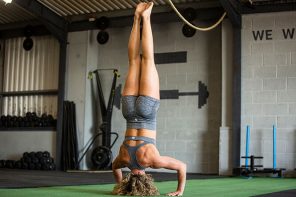The continued popularity of mind-body classes such as yoga and mindfulness, demonstrates that people are on a deeper search for knowledge and power to find their own solutions. A part of us, if not the whole of us, is seeking to make space and find peace and balance in this modern ‘do it all lifestyle’.
Movement and meditation are great strategies to empower you to feel more in control of your emotions whilst equipping you to deal with life stresses. However, we’re becoming more aware of the importance of mindset and its role in helping us to achieve and maintain our health and fitness goals and gain a better life balance. So what is there to learn?
Mindset has always been a popular focus for high performers. From business people to top athletes and artists – they all know that mindset is key in helping them to deliver and reach their goals.
Everyone has their specific challenges and blocks, which they are seeking to overcome, and we all have our strengths and weaknesses. But, whether I’m working on a 1:1 basis, or with groups, there are the key themes and strategies, which I always maintain. Applying these learnings will empower you to overcome your challenges and help you to develop your mindset tool-kit.
Where to start:
Raise your awareness.
Self-awareness is a big part of mindset. Pay attention to your thoughts and your feelings, if you can’t recognise a problem, how can you take action to change or prevent it? Raising your self-awareness is key for any change and crucial for any learning to happen.
Take responsibility.
It’s easy to blame others for our problems. It takes the pressure off us. If it’s not our fault then we haven’t got to do anything about it. But this is also dis-empowering and can become an unhelpful habit in our life – an excuse for not changing. Think about a challenge you are dealing with and how much responsibility you are taking? Do you always have a reason or an excuse for not eating healthy, for not doing enough exercise? What would happen if you fully took responsibility?
When you take responsibility you can take ownership, you can feel empowered to do something about it. This is when the magic happens. Start to take responsibility, it will feel uncomfortable at first, but you will soon realise how much power you have to make positive change.
Knowledge is power.
Learn about basic psychology, learn about your mind. This will help you change unwanted habits, improving your motivation and your commitment to your goals. Invest time reading. If you are serious about your goals you should be interested in them, so demonstrate this in your commitment to learning and let your mind and body know that you are serious about making these changes.
Learn from your mistakes.
Only when you have self-awareness and when you take responsibility can you learn from your mistakes. Learning from your mistakes allows you to evolve your decision-making. If you don’t learn from your mistakes, you will repeat patterns and get stuck in a frustrating loop. This can lead you to developing beliefs about your ability to change. Learning from mistakes helps you to create and embed new, more empowering habits.
Techniques or strategies.
There are many ways to manage emotion, as I described in the start, yoga, meditation and mindfulness are popular, mainstream methods which support relaxation and mind body balance.
Exercise, massage or heat treatments are great ways to bring you present and will help you to relax and alleviate tension. The ability to recognize and manage emotions will build your resilience. In particular with lifestyle change, your response to stress is something important to manage and can be in direct conflict to the goal which you are seeking to achieve.
For example if you manage stress with comfort eating or drinking that’s something important to be very aware of and take action on. Developing a relevant tool-kit of techniques, which you can proactively use and employ when needed, is essential.
It’s all about knowing your own mind and putting in place a mindset tool-kit, a system of thoughts and behaviours that will lead you towards your goals and change any unwanted habits.
Emma Howells Davies is a behavioural change specialist and coach with over 20 years of experience of supporting people to maximise their performance – in sport, in business and in life. www.emmahowellsdavies.co.uk











